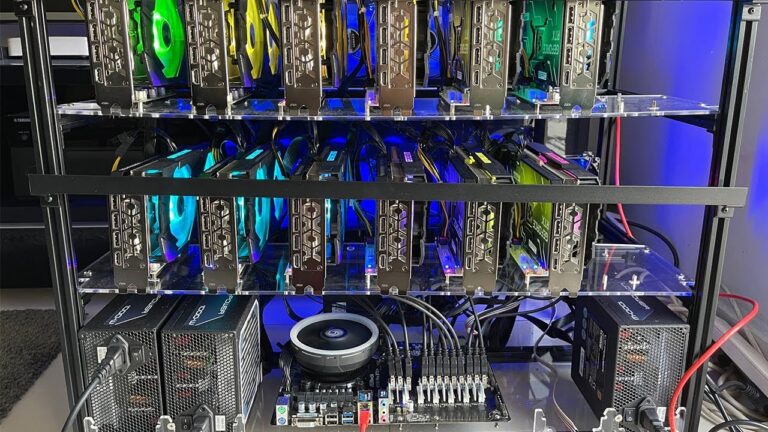There is an increase in the number of the home based business opportunities people start taking, especially since the economy is pretty bad in many countries and people realize that a new income stream can’t hurt. Some are just putting few hours a day or a week, trying to get few extra bucks, others are already investing more time and effort, trying to make their side-gig something that could one day feed them and their families.
Many of the people who are successful in their side hustles have to finally decide if it’s worth keeping a day job (with a fixed salary and income possibilities, but benefits and less stress – since the money is being paid once / twice a month) or if they’d be better of working on their own business.
Keeping a day job while also working on your home based business
- it’s probably the best option, since you don’t lose your income and the stability it provides, while you can test the ‘waters’ with your business.
- it does mean less time you can spend on your business, but with some serious focus and working productively, you can make it.
- you might not feel the urge to ‘make it’ since you already have a safety net. For many people this can translate in a sloppier effort when it comes to building their own ‘show’.
- you will have to invest more time, since the job you already have cuts deeply into your daily allotted time and, let’s face it, you can’t build a successful home based business if you’re not putting in some work/effort.
- it’s stressful, since you need to perform well on your regular job and also make sure you’re a success in your business.
Quitting your job to work on your home based business
- this is a VERY tough choice and should not be made lightly. The moment you quit your job, you HAVE to succeed in your business, otherwise you’re … let’s say it .. screwed.
- the time advantage is an important one, you don’t ‘waste’ time on a regular job, you are putting every minute into your own project.
- the desperation to make it can really help push your business, there’s no ifs and buts, you need to make sure it does work.
- you will face an irregular income, which, combined with a lack of proper savings, can prove to be devastating.
- the stress level is higher, when everything you own is at stake. Make sure your family life is not suffering from this.
How did it work for me?
In my case there wasn’t an option anymore. While I ‘strolled’ on the business ‘lane’ for few years, having a good job and income never gave me the push I needed. I wasn’t focused enough and never dreamt of really working on my business, since life was good for me as an employee. Do I regret it now? YES!
I could have used the stability of a good salary and the fact I didn’t have to work too much each day at the radio station to really push myself to be successful in my side-hustle. But I was lazy and thought the money is good, if it came. Sure, it was great to get some extra bucks from time to time, when my clients needed a web site to be built, but I never pushed to pursue them and grow my clientele.
The kick in my behind came in 2009, when I lost my job. I never bothered saving money, I was even pretty deep in debt over a new car and was also paying taxes for my business. Disaster! The focus I had back then was insane (well, I was close to losing my car and getting into more trouble if I didn’t pay my business taxes, so let’s say I didn’t quite have a choice) and pushed me beyond any limits.
For few months all I did was work, eat and sleep. My day was starting at 10-11, when I could wake up, and ended at 3-4 in the morning, depending on the work I had. The good thing is that I did have a lot of clients and work, since I was also working at dismal prices. My usual rate was a history, I did work at a 1/5 of my regular price, even 1/8 in few occasions, just to get SOME money.
This is a clear way to self-destruction and I don’t recommend anyone to do this. I was desperate and needed the money, so for 3-4 months I ignored my family and my health, just to get out of the mess. And yes, I WAS LUCKY, had some excellent clients who recommended me and helped me build my business faster.
How should you build your home based business?
1. Don’t rush into quitting your job – sure, you’re more focused (desperate), when you are jobless, but you do need an income that’s coming regularly. I know the idea of being your own boss sounds very cool, but don’t make any rush decisions. Financial stability is the key here and, if your job still provides it, don’t quit it unless you really have some good reasons.
2. SAVE some money – you business WILL cost you. Might not be a lot of money, but you will need to take care of various things. Maybe you need to buy various materials, to pay some taxes, to solve some problems. Have some savings put aside, so that you can still pay off your debt (probably you have it) and also be more relaxed once the business starts running.
3. Plan carefully, but don’t waste too much time planning – you should always make a good plan and not rush into anything. But don’t waste months/years with this. I have known people who planned for years and never did anything. It’s not a great idea to start a business and not know what you’re gonna do, but please don’t waste good working hours looking at spreadsheets and Powerpoint presentations.
4. Don’t start doing a crappy job for your employer – I know that running your own small home based business is exhilarating, but your main concern as an employee is to do a great job at work. Don’t be less professional and focused just because you’re now trying to make it on your own. Working 2 jobs is not easy, but, if you’re doing a lousy job with both, you might not like the outcome.
5. Work had and SMART at your own business – be productive, promote carefully, take care of your clients. Become a master of planning and productive work, you don’t have the ‘luxury’ of working all day long for your business, so making the most out of your time is very important.
6. Keep your expenses LOW – don’t start paying for all kinds of useless crap, just because now your have a ‘business’. Keep a very strict budget and don’t overspend. Your main focus is to earn as much as humanly possible with the smallest investment ever. Not to mention you can be wildly successful with a small budget.
6. Asses your performances constantly – see what can be improved, track your budgets/expenses/income to really see how you’re doing. Don’t work blindly, see how well you’re performing and what needs to change.
7. Have the strength to admit defeat – freelancing is not for everyone. While I do recommend all my readers to TRY a side business (it gives you an amazing experience and the chance to really see your limits), if it doesn’t work, it doesn’t work. You can decide to try another business (not all successful businessmen made it big from their first try) or, if you clearly don’t like it and cannot perform well, just quit. If you were smart enough to not spend a lot of money on this business, you’ll just have ‘wasted’ some time. Which is not wasted, since it allowed you to see life from the ‘other’ side and get the experience money can’t buy.
8. If it works well, consider the alternatives – there are many cases when your side business is blooming nicely and the income puts your regular wage to shame. You’ll have to consider working full time on your home based business and quitting your job. Don’t make the choice lightly, plan accordingly and be careful. Just because you had a great month on your business doesn’t mean anything. You need to see it work well for a while, be able to save some serious money for the bad months that might come etc. After you looked and prepared for the change, only then quit your job and pursue your dream business full time.
I’ve had some amazing 4 years working for myself. It’s the best ‘deal’ for me, it allows me to manage my time better, I can travel a lot, the money is very good. While the start wasn’t ideal, at least it all finally worked together.
What do you think? Should you quit your job to pursue your home based business success from the start? Should you keep it while growing your business? What did you personally choose and how did it work for you?
PS: since I’m a big ‘consumer’ of personal finance blogs, I have created a small personal list of the ones I love commenting on. Please take a look and, if your blog fits the list/guidelines, use the form to have it added 😉





I’m always amazed at the number of people who decide to work alone who never take the time to set it up as a business. That’s job one, I think. Treat your home business as a business and the chance you’ll be successful goes through the roof!
The mindset is really important. The moment I decided this is a real business, I started being successful after years of just running a side show and earning money every once in a while.
Great post! I started my business while working a day job, and I definitely recommend others to do the same. Jumping into a business when you really don’t know what may happen and quitting your job immediately would be too scary for me. You need SOME sort of plan!
Either this way or a hefty savings account to keep you and the family afloat for at least 6 months, until the business starts working (not that it always gets a profit this fast anyway). I do think that keeping the day job is a good idea most of the time, it really allows for more opportunities and less stress.
I can’t wait to quit my job. Although my job is a great motivation to work and build my home based business I am ready to be free to work on what really matters to me. Your point about admitting defeat hits home with me. I have had many failed side businesses over the years. It’s all part of the learning process and makes your next business much better.
As long as you keep on trying, you’ll be fine. You already amass the experience, love to run a business, so it’s not something you dread, now it’s all about finding that ‘something’ that works for you. And the job pays for the bills in the meantime.Keeping fingers crossed 😉
There are a few bloggers in the world that make more money than my salaried engineering position, but not many that I know of. I have no desire to stop being an engineer. I do find writing about PF to be a fun hobby, though. I like your recommendation that anyone interested in freelancing from home not quit their day job, and see what they can do while working the two jobs. It may be difficult to work two jobs for a while, but it is the safest way see if freelancing is doable for the person trying it out.
Well, since freelancing might not prove to be wildly successful at first, the time you need to put into it is not too much. 1-2 hours/day should suffice. Sure, if you get a lot of client work, it’s a different story, but then you’re getting ready to have make the decision to switch to full time and leave the old job.
I used to love the secure feeling of having a regular daytime job but sadly, health condition had to take that away. So, here I am, doing freelancing jobs and luckily, while the income is not as good as it was, I am slowly working my way towards it.
So you’re a similar case to me, when the job is no longer an option. Let’s hope the freelancing will built up more and you’ll do way better 😉
I’ve started my first business almost 15 years ago while preparing for university.
For the next 10 years the business was more like a hobby; in parallel I got a job at one of the biggest players in the industry. The purpose was to learn as much as possible.
In 2008 I decided it was time to go on my way. Everybody said I was doing a mistake.
During this time I’ve started 8 more businesses, 5 of them being still active.
The one started 15 years ago is still a champ in my portfolio and one of the references in its industry.
At the end on 2013 the only thing missing is a Porsche 911. It’s missing because the priorities have changed a bit in the last years. 😉
Quit your day job when there’s nothing else to learn in that company.
Be prepared to survive for at least 6 months.
Every 18 months stop for a period of 3-6 months and experience something new (other industry, other culture, etc). This will keep your brain active.
Do not to work from home (this applies only for those who have a lack of discipline).
Love your story, Paul and thank you for sharing it with us. I’m happy to see such examples of personal success.
I think building up your home/side business while still staying at your full time job is the best policy. Once you’re on your own, you are REALLY on your own. Not just income wise but with insurance, 401k, etc.
Yeah, and insurance/taxes are quite a burden. So the business should be on it’s ‘feet’ to be able to cover all this and earn a living.
I don’t own a business, but if I were to, I would probably continue with my full time job and do both concurrently until the following 1) business income exceeds current salary AND 2) I enjoy running the business more than my current job and not quitting would be detrimental to the business.
It does make sense. It has to be enjoyable and also pretty lucrative to be worth ditching a stable job.
I have both a full time job and a full time work load with blogging after my day job. I love to do both, because I don’t like relying on one source of income for everything. My day job and after-hours job are so different that it’s nice to switch gears. Quitting my job isn’t for me.
Having diversity is indeed nice, you don’t get bored. And 2 streams of income are always better than a single one.
Gotta chime in and agree about the different income streams. I have a part-time “day job” where I get health benefits and job security. And then I have a couple of different gigs I do independently–I try not to over-rely on one indie gig but instead make regular efforts toward different projects. I feel very lucky that I get health care through my part-time position.
Healthcare is very important these days, it’s good to have it covered. And multiple income streams cannot hurt either 😉